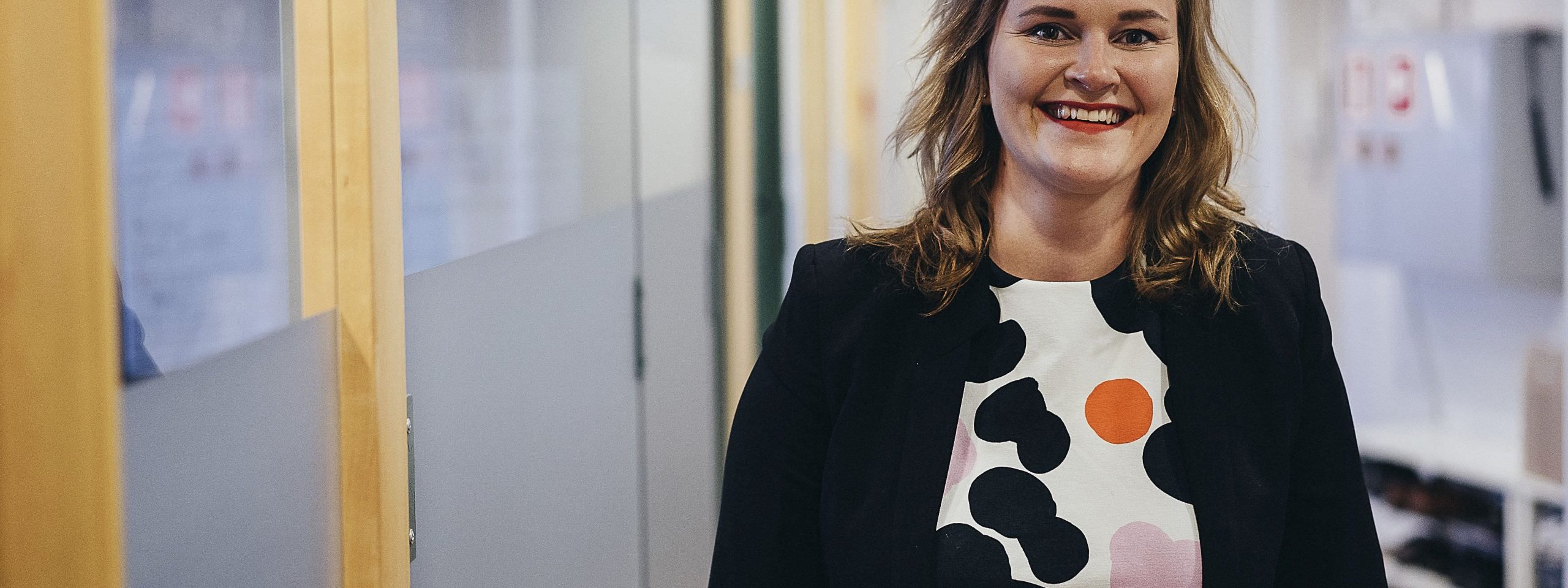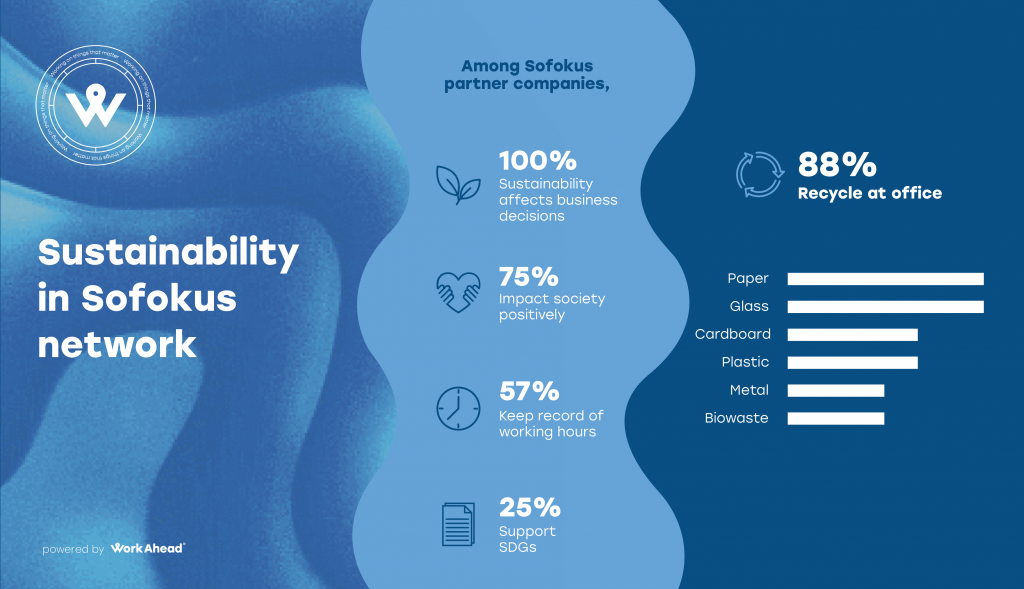
Sustainability – what does it mean for your company?
28 Feb 2020 • People & Culture
There’s no doubt sustainability will become one of the competitive advantages for companies in the future. The turn toward a corporate sustainability approach is already taking place in companies such as the fashion giant H&M, which recently promoted its Sustainability Manager to company CEO.
In the coming year, sustainability will also start to become a natural part of B2B sales negotiations. Are the people working with your customers prepared to explain how sustainability is taken into account in your company?
SUSTAINABILITY FINDS ITS WAY TO SALES
Sustainability has been a marketing trend for years, but I predict that in 2020 sustainability will find its way to the sales departments. Sustainability is nothing new, but it can be great way of gaining a competitive edge and setting yourself apart from your competitors. Consider this: If you, as a buyer, have two similar offers, but one of them pays attention to corporate responsibility and is open about its past and future sustainability efforts, which offer will you choose?
Are you ready to pay a little extra for the knowledge that you are doing business with a company that operates in a sustainable way? Have you surveyed your key partners’ views on sustainability? It can be a good idea to write about your company’s sustainability efforts on your website and let those working with your customers know what your company’s views on sustainability are.
B2C customers are already conscious of the implications of sustainability and make their choices accordingly. This is increasingly reflected in B2B sales and collaboration discussions as well, with B2B operators paying attention to how and where they store their products, services or data, for example. As obvious as it may sound, now’s a good time to broaden your ideas of sustainability, so that you’ll be able to have good discussions with customers who take it seriously.
In the future, sales staff and customer service personnel will be able to tell what their company’s views on sustainability are and how it’s being promoted as a normal part of sales negotiations or collaboration discussions. The subject can’t be dodged by appealing to the company’s comprehensive digital presence anymore. Instead, everybody needs to be able to explain the company’s stand on social responsibility, diversity, engagement and sustainability. Note that we’re not talking only about the environment although you need to bear in mind that digital businesses can also take environmental matters into consideration in how they run their business.
SUSTAINABILITY IS ALSO ABOUT DIVERSITY AND GENDER EQUALITY
Matters of diversity and gender equality are often prominently present and a significant part of corporate sustainability. Gender equality is also one of the themes of the sustainable development goals of the United Nations (Agenda 2030).
Anyone can have an effect on equality by doing or not doing things. For example, I no longer take part in events, panels or training sessions that feature only male speakers. To me, not managing to include speakers of different genders is a sign of the event organizer’s laziness.
COMPANY VALUES AS THE FOUNDATION OF A SUSTAINABILITY STRATEGY
Consider preparing your sustainability strategy on the foundation created by your company values. If you haven’t yet defined your values, give them some thought first. If you want, you can approach your values through sustainability. For instance, if one of your company’s values is caring, think about how it is reflected at the level of people, stakeholders, society or the environment.
Sustainability or ethics should not be seen as separate from everything else. Instead, they should be included in all business decisions and allowed to guide the process in the background much like company values.
SUSTAINABILITY AT SOFOKUS
We have defined and implemented several core values that are part of our everyday lives: focus on people, learning, courage and creating value and trust. It would be easy to claim that we automatically make sustainable and socially responsible choices and that there is no need for careful documentation or planning.
Every day, we make dozens of small and big decision based on our values, but still it’s difficult to explain Sofokus’ ethical guidelines to people outside our own circle employees and stakeholders in an understandable way. That’s why we ended up creating something completely new to us, something we can stand behind and be proud of. We decided to lean on “The 2030 Agenda for Sustainable Development”, and take it as a base for our Sofokus Ethics strategy, our response to corporate social responsibility, diversity & inclusion and sustainability goals.
The 2030 Agenda is adopted by all United Nations Member States in 2015, which provides a shared blueprint for peace and prosperity for people and the planet, now and in the future. The heart of the Agenda is the 17 Sustainable Development Goals (SDGs), which are an urgent call for action by all countries – developed and developing – in a global partnership.
They recognize that ending poverty and other deprivations must go hand-in-hand with strategies that improve health and education, reduce inequality, and spur economic growth – all while tackling climate change and working to preserve our oceans and forests.
GET STARTED WITH CORPORATE SUSTAINABILITY BY FOLLOWING THESE STEPS:
- Engage the heart of top management. Sustainability needs to be a matter of the heart as well as a strategic choice, so that strategies that have already been planned can be re-evaluated critically as necessary.
- As with any development project, appoint a senior person in charge. The person in charge does not need to be the company’s best recycler or equality driver. Interest in the topic is enough.
- Onboard the appointed person on sustainability matters and broaden their perspective. What different approaches to sustainability are there? I found this online course on Sustainable Development Goals (Agenda 2030) offered by the UN Association of Finland useful.
- Engage the entire company to find out what measures have been taken to tackle sustainability and collect ideas on what could be done in the future.
- Write a clear and easy to read report or plan, which can be distributed both internally and externally. You may have to revise or validate some plans.
- Include selected ideas as part of the company’s business, growth or marketing strategy.
- Promote sustainability and make sure the employees in your company and your main stakeholders understand the points you consider important.
- Be active with your stakeholders, such as your partners and customers. Find out their views on sustainability. We have been collaborating on this with, for instance, Work Ahead, by conducting a sustainability survey on our stakeholders.
- Iterate regularly. For example, after one year it may be a good time to take a moment to think what has been accomplished and update ideas, surveys as well as the sustainability report, if there is one.

Why am I responsible for these things at Sofokus? To me, tackling the sustainability themes we have chosen is the key to our growth. The topic is very close to my heart and I’m happy to discuss it over coffee, lunch or over the phone.





